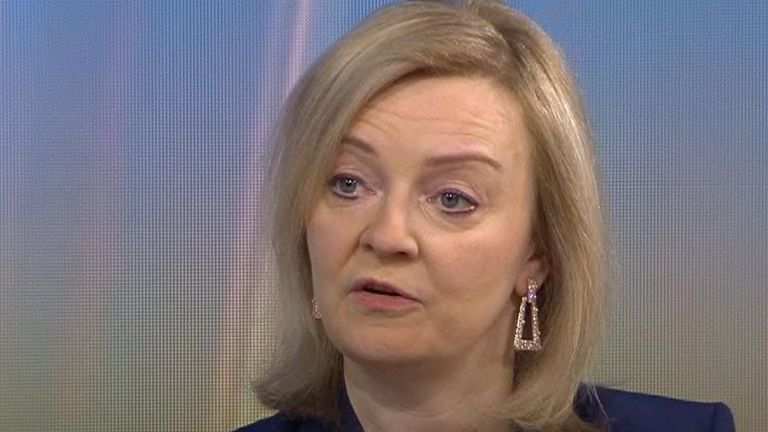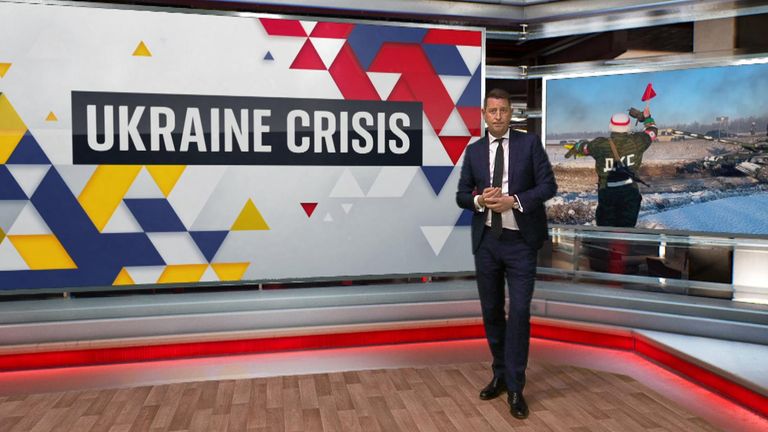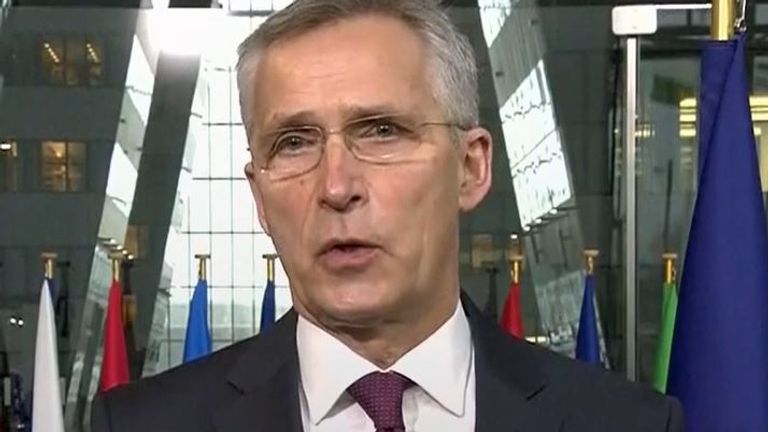A Russian invasion of Ukraine would bring “massive consequences” for Moscow, the foreign secretary is set to warn Vladimir Putin during a speech in the Ukrainian capital.
Liz Truss will visit Ukraine this week as part of continuing diplomatic efforts to avoid a war between Russia and its neighbour.
It comes as a senior US official in the Biden administration contradicted Russian claims that they were withdrawing troops from the Ukrainian border, by saying Russia had actually added as many as 7,000 soldiers to the area.
Speaking on condition of anonymity and without providing any evidence, the official added there had been a marked increase in false claims by Russia, including reports of unmarked graves of civilians killed by Ukrainian forces.
During her trip, the Ms Truss is expected to repeat the UK’s demand for Russia to stick to its commitments and respect Ukraine’s sovereignty, as well as warn Vladimir Putin that an invasion would bring with it severe economic sanctions.
‘Take the path of diplomacy’
Ms Truss is set to give a speech in Kyiv in which she will emphasise the importance of the principle of national sovereignty and urge Moscow to pursue diplomacy.
In her address, the foreign secretary is expected to say: “We want to live in a world where people are in charge of their own future, free from aggression and coercion, where security is truly indivisible and where nations respect the sovereignty of others, and live up to their commitments.
“That means working together with our friends in Ukraine and beyond to face down threats wherever they are across the world.”
She will appeal to Moscow to avoid war: “I urge Russia to take the path of diplomacy. We are ready to talk.
“But we are very clear – if they decide to continue down the path of aggression, there will be massive consequences bringing Russia severe economic costs and pariah status.”
Russia’s Foreign Minister Sergei Lavrov has vowed his country will retaliate if new sanctions are imposed by Britain.
UK ministers gained powers last week to impose tough new sanctions on Russian oligarchs and businesses.
But Mr Lavrov, who held a stormy meeting with the foreign secretary last week, has vowed Moscow will respond to any action taken by London.
Prime Minister Boris Johnson has said the “very, very tough” package of sanctions is “ready to go” should Russia launch a “reckless” invasion of Ukraine.
According to the Foreign Office, Ms Truss will also visit Poland and Germany during her trip.
She will have meetings with Ukrainian Foreign Minister Dmytro Kuleba and Polish Foreign Minister Zbigniew Rau.
On Saturday, Ms Truss will go to the Munich Security Conference, where she will endeavour to strengthen security ties with key allies.
‘Not too late for Russia to step back’
News of the foreign secretary’s trip comes after Mr Putin said Russia was ready for talks and that the West had to listen to Moscow’s demands.
NATO chief Jens Stoltenberg said on Wednesday that satellite imagery disproved Russia’s claims that it is withdrawing troops from Ukraine’s border.
He said there was at this stage no sign of a military de-escalation from Moscow, though it is “not too late for Russia to step back from the brink of conflict”.
This was echoed by the PM, who told UN Secretary General Antonio Guterres in a call on Wednesday evening that there was “little evidence of Russia disengaging”.
Armoured vehicles move towards Ukrainian border
Lieutenant General Sir Jim Hockenhull, chief of defence intelligence, said: “We have not seen evidence that Russia has withdrawn forces from Ukraine’s borders. Contrary to their claims, Russia continues to build up military capabilities near Ukraine.
“This includes sightings of additional armoured vehicles, helicopters and a field hospital moving towards Ukraine’s borders.
“Russia has the military mass in place to conduct an invasion of Ukraine.”
Meanwhile, the UK is doubling its number of military personnel in Estonia and sending additional tanks and armoured fighting vehicles.
Subscribe to the Daily podcast on Apple Podcasts, Google Podcasts, Spotify, Spreaker
The Ministry of Defence said Apache helicopters would also soon be making their way to eastern Europe to take part in exercises with allies, while four additional Typhoon jets were due to be landing in Cyprus to begin patrols of eastern Europe.
HMS Diamond, a Type 45 air defence destroyer, will set sail in the coming days for the eastern Mediterranean.




